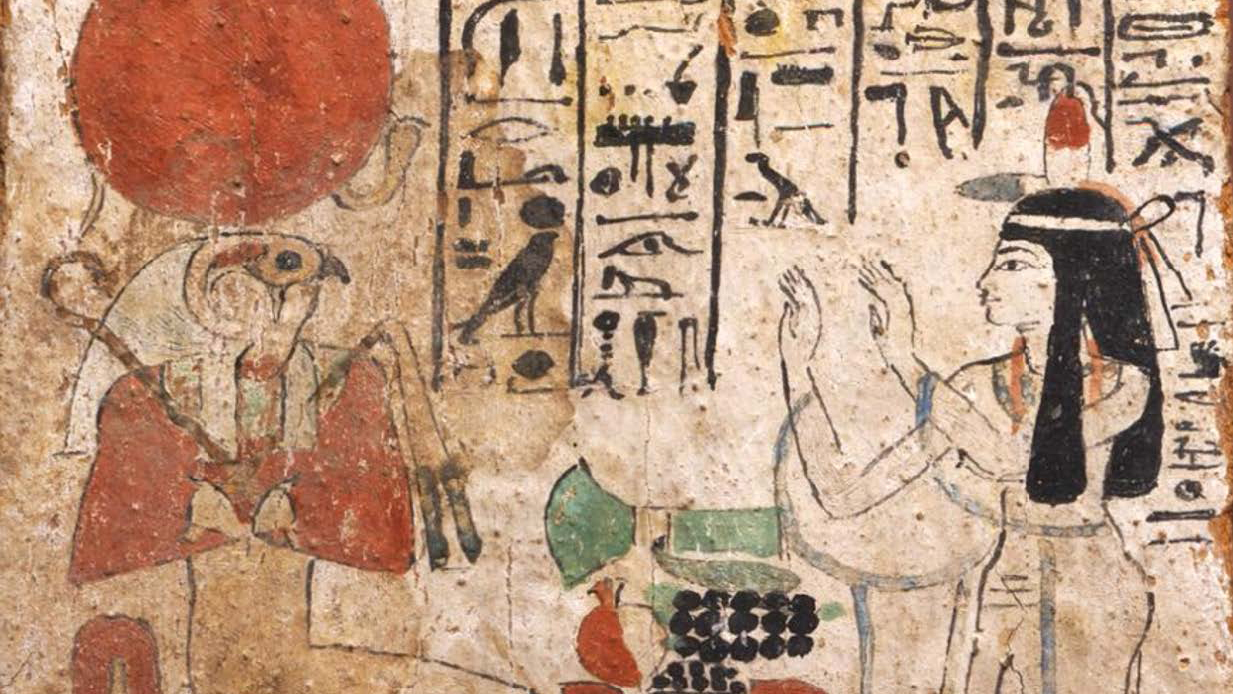Penn Museum Opens Access to Ivy League Educators Through Deep Dig, an Online Courses for Adult-Learners

Philadelphia—An online class that began as an experiment during the height of the COVID-19 pandemic is here to stay. The Penn Museum announced that University of Pennsylvania professors and graduate students will continue teaching a series of virtual archaeology and anthropology courses for lifelong-learners.
When the Penn Museum building closed for nearly 20 weeks in 2020 due to the pandemic, the Learning and Public Engagement team quickly moved its tours and events online, enabling the Museum to continue serving the community. To date, nearly 90,000 attendees have participated in the Museum’s virtual offerings.
One outstanding pilot program is a month-long virtual evening course designed for adults—with no formal education or background required—called the Deep Dig. Through highly engaging weekly class meetings, online archival reviews, and videos, the Deep Dig encourages adult-learners to “dig a little deeper” into a range of subjects related to the Penn Museum’s collections and research.
From March 2020 to date, the Penn Museum has offered 18 Deep Dig courses, which have generated nearly 600 registrations from 29 states (including Pennsylvania, California, New York, and Virginia), as well as two countries (Canada and Turkey). Of those students, 28% have taken two or more Deep Dig classes, and 23 need-based scholarships have been awarded.
Deep Dig topics have included “Archaeology in Philadelphia,” "Understanding Greek Vases,” “Southwest Textiles,” and “Unpacking the Stories of Troy and Homer.”
Sandra Portnoy has taken every Deep Dig class, starting with prominent archaeologist Dr. Brian C. Rose’s March 2020 course “Rome, Pompeii, and Herculaneum.” In some cases, Portnoy says, she knew about the subject matter, but at other times, her curiosity compelled her to pursue new subjects, such as the archaeology of gardens.
“I enjoyed having something to look forward to on Thursday nights,” Portnoy says. “This was especially important when we were all quarantining. Now that things have opened up, I continue to sign up for the courses, knowing that if I need to miss a session, I can view the video later.”
Curt Travers, a returning Deep Dig student, says the virtual classes are “one of the only good things to arise from the pandemic.” He adds, “It is the opportunity to learn from world-class historians, archaeologists, and anthropologists. The live, interactive format allows me to travel the world and through time without ever leaving my home office. The curricula never disappoint, and I appreciate the passion these experts bring to their research.” Travers, who has attended nine Deep Dig courses, considers them the highlight of his week. “I can only marvel at how rapidly the social sciences are advancing and this offers me a chance to keep up.”
The spring semester’s new set of Deep Dig classes blends popular culture with archaeology, widening its appeal. On Thursday, March 3, the “Real Housewives of Ancient Egypt” course will begin.
Led by Dr. Shelby Justl, a lecturer at Penn who teaches workshops at the Penn Museum, the online course will explore women’s contradictory roles: goddess, pharaoh, priestess, landowner, mother, wife, and more. It will delve into the political and economic rights of ancient Egyptian women—from being able to divorce to disowning their adult children for disobedience. The class will also examine ancient Egyptian letters, romantic poetry, the archaeology of women’s tombs, and artifacts used by the women in ancient Egypt— revealing interpretations of ancient sexuality, gender stereotypes, as well as the social conditions of the time.
Another course, “Uncovering Archaeology Under the Waves,” explores underwater archaeology, including how artifacts are retrieved and studied, plus a wealth of archaeological data—from sunken cities to submerged World War II planes.
In “Cultural Heritage and Contemporary Issues,” thought-leaders and advocates from the Penn Cultural Heritage Center (CHC) will guide adult-learners to examine a range of social issues that emerge from cultural heritage protection and preservation. Each week’s class will focus on a different subject—from how cultural heritage and human rights have become intertwined, to the responsibilities of academics and museums. It will also discuss the future of cultural heritage policy.
Lifelong learner Anna Hadgis says she has expanded her knowledge of archaeology, history, anthropology, and art—thanks to the Museum’s online courses.
”Renowned archaeologists, curators, and academicians specializing in global research offer revealing insights into recent endeavors and expeditions,” Hadgis says. “These authorities encourage participants to pose questions in the chat and include links to current articles and titles for further research. I eagerly look forward to my monthly dose of thought-provoking Deep Digs with the Penn Museum.”
The cost for the Deep Dig is $175 for the general public or $125 for Penn Museum members, opening up direct access to internationally recognized archaeologists and Ivy League educators. A number of need-based scholarships are set aside for each course and available by contacting
###
About the Penn Museum
The Penn Museum’s mission is to be a center for inquiry and the ongoing exploration of humanity for our University of Pennsylvania, regional, national, and global communities, following ethical standards and practices.
Through conducting research, stewarding collections, creating learning opportunities, sharing stories, and creating experiences that expand access to archaeology and anthropology, the Museum builds empathy and connections across diverse cultures
The Penn Museum is open Tuesday-Sunday, 10:00 am-5:00 pm. It is open until 8:00 pm on first Wednesdays of the month. The Café is open Tuesday-Thursday, 9:00 am-3:00 pm and Friday and Saturday, 10:00 am-3:00 pm. On Sundays, the Café is open 10:30 am-2:30 pm. For information, visit www.penn.museum, call 215.898.4000, or follow @PennMuseum on social media.



